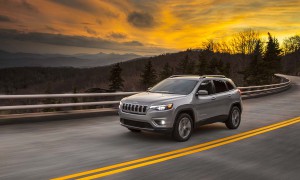Fiat Chrysler Automobiles N.V. and Volkswagen of America posted solid sales increases during July, but the rest of industry was feeling the downward pressure of slowing sales in the face of major headwinds such as rising interest rates.
FCA reported July 2018 sales increased 6% when compared to sales of the previous year. Jeep brand July sales rose 15% while Ram brand had its best July ever as sales increased 2%, the company reported.
Volkswagen of America Inc. reported an increase of 12.7% over July 2017. With 203,418 units delivered year-to-date in 2018, the company is reporting an 8% increase in year-over-year sales.
“We’re very pleased to mark our seventh consecutive month of year-over-year growth,” said Derrick Hatami, executive vice president of Sales, Marketing and After Sales for VWoA.
(US trade partners plan next steps against potential new tariffs. Click Here for the story.)
“Our SUV line-up has given us strong lift in 2018 and July was the best month this year for the 2018 Atlas. Overall, this was our best July since 2015 and the all-new 2019 Jetta played a large part in reaching that mark, with Jetta sales leading the Volkswagen brand in volume for the month,” he said.
Audi also reported a 2.1% sales increase for July.
General Motors has elected to withhold its monthly sales figures but Ford Motor Co. posted a 3.1% sales drop during July despite a 25% surge in fleet sales. Sales of Ford trucks and SUVs remained very strong, Ford executive said.
“Ford pickups and vans dominated last month, with overall trucks posting an increase of 10%. Combined, pickup, van, and SUVs totaled 153,402 vehicle sales, for a 4.8% gain. We have now sold more than 1.1 million trucks and SUVs this year. Lincoln Navigator continues to be the country’s hottest new product, with sales expanding in every region of the United States,” Mark LaNeve, Ford vice president, U.S. Marketing, Sales and Service.
The three major Japanese brands, Toyota, Nissan and Honda, also all reported sales declines for July.
(Click Here to see why auto suppliers are growing pessimistic about near-term prospects.)
American Honda reported that sales of the Honda brand dropped 8.4% while sales of the Acura brand fell 6.6% despite record sales of the new Acura RDX.
“For the first time in our company’s history, the Honda brand is on pace this year to sell more light trucks than passenger cars,” said Henio Arcangeli Jr., senior vice president of the American Honda Automobile Division. “Honda’s unique flexibility within our U.S. manufacturing operations has played a critical role in our ability to adjust our production mix and capitalize on the market’s shift toward light trucks.”
Toyota Motor North America reported its sales dropped 6% on a volume basis in July as Toyota brand sales fell 6% and Lexus sale fell by 12%.
Nissan Group reported total U.S. sales for July 2018 dropped 15% compared to the previous year as both the Nissan and Infiniti brands saw their sales decline. Infiniti sales dropped 10% while Nissan sales fell 15% as deliveries of the Frontier pickup truck fell by 40% according to the company’s sales charts and sales of Nissan passenger cars dropped by 21%.
The industry is also facing another potential threat in rising prices, which are being pushed upwards at a faster pace by rising material costs and tariffs on basic commodities such as aluminum and steel.
Cox Automotive estimated the average transaction price for light vehicles in the United States was $35,359 in July 2018, up 3% year-over-year.
(To see why automakers warned Trump administration about tariffs, Click Here.)
Cars are expected to make up only 31% of July sales, down from 36% just one year ago, which is pushing transaction prices up as consumers opt for pricier SUVs and trucks. “Prices also are likely to strengthen as the average days in inventory has begun to recede for the first time this decade, which is a sign automakers are managing production well in the post-peak demand era,” Cox noted.

